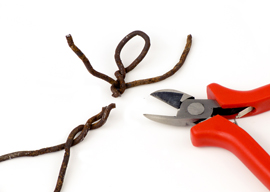
June 03, 2017

Source: Bigstock
The British Medical Journal reported last week that Dutch legislators are considering the extension of their law of euthanasia to old people who are not fatally ill but merely tired of life and who therefore wish to shuffle off this mortal coil before their time. If the Devil should not have all the best tunes, why should the dying have all the best deaths? What have they done to deserve it? Let us be reasonable.
Initially, euthanasia was permitted in the Netherlands in the name of humanity and compassion. There are undoubtedly cases in which the most awful suffering is both unremitting and hopeless, leading in the near (but not quite near enough) future to death. With real religious faith such suffering can sometimes be accepted with equanimity, but not always even then. Besides, most people nowadays have no such faith; and therefore it seems only kind to bring forward death to avoid unnecessary and useless suffering.
There are several practical arguments against this view of the matter, of course, independent of the overarching belief that human life is sacred and it is no part of a doctor’s work actively to end it. Principal among these arguments is that of the slippery slope, in other words that one thing leads to another, and then to another, until the abyss is reached.
The argument of the slippery slope can be used to oppose any change whatever, for once you concede a, you have no firm ground from which to resist the concession of b, and so forth, until you reach absurdity or worse. Projection, however, is not prediction, nor is any slope a fatality, so that not every abyss is reached just because the first step toward it has been taken.
In this case, however, the Netherlands, or at any rate a group of people in the Netherlands, seems eager to slip down the euthanasian slope as quickly as possible. If they have their way, Amsterdam may yet have its suicide parlors as it has its coffee shops.
According to the BMJ, the rationale for euthanasia has changed, at least for those who want to extend the law, from the prevention of suffering to the promotion of personal autonomy. If old people feel that their life has reached its end, that they have become what the Nazis termed useless eaters, who are we to insist that they continue to live, and therefore why not help them to end their lives as painlessly as possible? Their wishes as autonomous human beings should be respected as paramount.
It doesn”t take much reflection to discover certain problems with this line of thought. If individual autonomy is the touchstone, to be always respected, then whim is as much to be complied with as fixity of purpose. If I say I want to die, it matters not that the feeling will pass in an hour’s time: The purveyor of euthanasia, whoever it might be, has no right to enquire about the steadiness of, or even my reasons for, my death wish once he has established that I am not actually mad and have the capacity to decide for myself. Nor is there any reason to confine the benefits of euthanasia to the old, for to do so would be ageist and discriminatory (and discrimination is the root of all evil). One may, after all, feel tired of life and find it meaningless at any age, indeed it is very common early in life; one does not have to wait until one is 70 to experience taedium vitae. Graham Greene played Russian roulette, or said that he did, early in his life; why leave matters to chance?